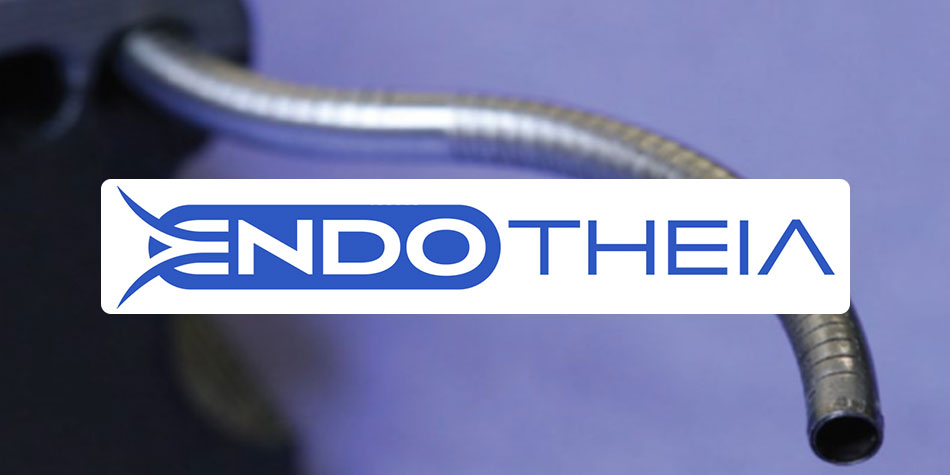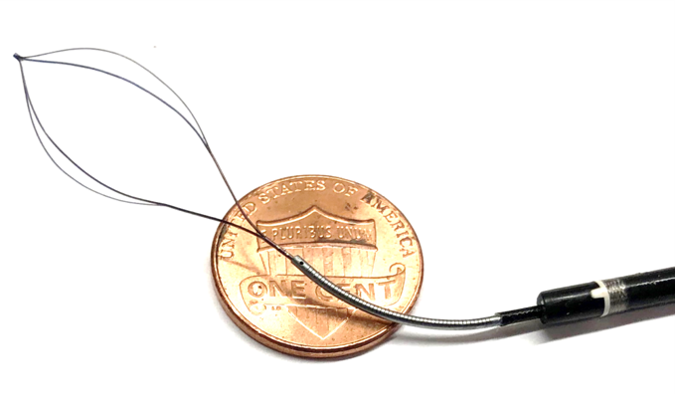
A technology from the University of Tennessee, Knoxville, lies at the heart of a startup company creating next-generation medical devices for flexible endoscopy.
EndoTheia harnesses the power of intelligently micro-machined materials to create highly dexterous manipulators, adding flexibility that increases therapeutic yields in complex endoscopic procedures. The company’s devices supplement widely used and commercially available endoscopic tools by enhancing performance and improving quality of care with minimal workflow disruption.
Dr. Caleb Rucker, an associate professor in the Department of Mechanical, Aerospace and Biomedical Engineering at UT Knoxville, is the primary inventor of the technology behind the EndoTheia device. He has spent his career developing small, slender robotic arms that can maneuver dexterously in minimally invasive surgical procedures. Caleb co-founded EndoTheia in 2018 and serves as the Chief Science Officer, providing technical guidance and expertise to the team. He also runs UT’s Robotics, Engineering, Applied Continuum Mechanics, and Healthcare (REACH) Laboratory.
In his lab, Caleb invented a technology that uses concentrically nested tubes with modified mechanical properties to create dexterous bendable sheaths that can steer instruments at the tips of flexible endoscopes.

At EndoTheia, this technology translates into creating a device to better treat kidney stones. In the longer term, the team aims to improve care in other areas, such as treatment of colon cancer and other gastrointestinal procedures.
“Our steerable sheaths will enable physicians to have greater control over the motions of small flexible tools for minimally invasive procedures in the body,” remarks Caleb. “This will improve safety, cut down on procedure time and may even enable new lifesaving surgical approaches that are not possible using current technology.”
When Caleb first brought the technology to Dr. Robert J. Webster III, his former doctoral advisor at Vanderbilt University, he was excited about the potential impact of the idea, but commercialization seemed like a far-off dream. Robert helped Caleb co-found the company and now serves as EndoTheia’s president.
“I was still thinking of it as an interesting research project, something that I was going to mathematically model, investigate in the lab, and write papers about,” says Caleb. “But Dr. Webster realized several specific medical applications and said we need to make this a product in the next few years.”
Caleb comments that it’s difficult to realize the potential and vision of a technology unless you have commercialization in mind from the beginning. To do so, it’s key to start with the right goal and the right question.
“It’s tempting as academics to think of interesting questions in a vacuum and attempt to solve them, but it’s really better to be application driven and ask yourself, ‘What does the world need? What does society need? What does this industry need that they don’t have?’” continues Caleb. “And then try to solve that problem and market that research.”
As he develops his technology, Caleb has been thankful for UTRF’s support. In 2019, he received a UTRF Maturation Grant to help further advance the technology toward commercialization. The following year, UTRF and Vanderbilt University executed an exclusive license agreement with EndoTheia for Caleb’s steerable sheath technology.
“The Maturation Grant helped us gain a great deal of experience prototyping initial versions of the device and validating that it could work in the way we envisioned,” says Caleb. “My research group has since submitted another invention disclosure through UTRF, and they have been very helpful in identifying and reaching out to potential commercial partners.”
 EndoTheia received an SBIR Direct-To-Phase II Grant from the National Institute of Diabetes and Digestive and Kidney Diseases in the summer of 2020 to further study the use of their technology for complex gastrointestinal disorders. In September of 2020, EndoTheia began formal operations and moved into its first engineering offices and laboratory, located in downtown Nashville, TN.
EndoTheia received an SBIR Direct-To-Phase II Grant from the National Institute of Diabetes and Digestive and Kidney Diseases in the summer of 2020 to further study the use of their technology for complex gastrointestinal disorders. In September of 2020, EndoTheia began formal operations and moved into its first engineering offices and laboratory, located in downtown Nashville, TN.
“Venturing into the commercialization process is not always easy, but innovative thinkers like Dr. Rucker help pave the way for researchers and startups that want to impact the world,” says UTRF Vice President Maha Krishnamurthy. “At UTRF, we believe it’s essential to support innovators like Dr. Rucker and startups like EndoTheia.”